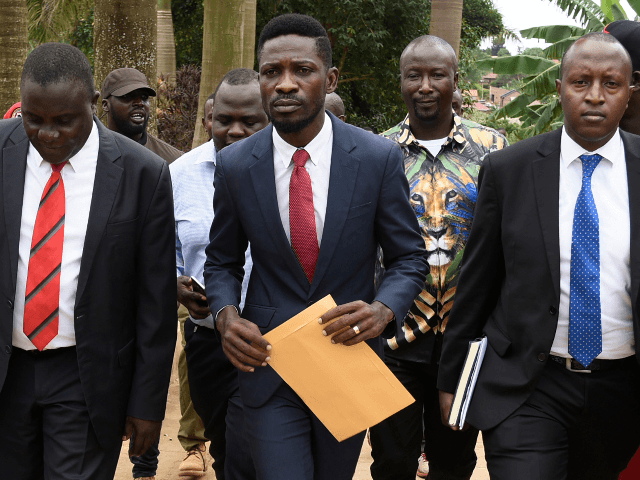Voice of America News (VOA) on Thursday published a fascinating article about how Ugandan dissidents are learning to evade surveillance technology sold to their repressive government by China’s Huawei telecom giant.
As VOA pointed out, such evasion is a matter of life and death for the Ugandan opposition, as they have been arbitrarily detained and tortured when the government uses its Chinese technology to hack their social media accounts and find their meetings.
Opposition leader Bobi Wine, for example, said he was ambushed, arrested, tortured hard enough to leave his body with marks that are still visible, and clubbed into unconsciousness, while his driver was shot and killed. He learned how to use “burner phones and old-fashioned code words” to protect his communications from government agents.
“I’ve been forced to devise means of changing telephone numbers and telephone headsets constantly to keep them on the wrong track. And sometimes, when I have to move to a place and I don’t want to be followed by the regime, I’m forced to leave my phone behind or put my phone in a car that is going in a different region of the country while I’m going into another one,” he explained.
“Among the things I got to learn was that they were listening to my calls and having a copy of all that was WhatsApp chats and many other things, following my location every time,” he said.
“I even learned that day when I was arrested and brutalized in Arua, it was because of that technology that they got that they could listen to my phones, and they were tracking me. And they know that they follow me on my phone and they know where I am and listening to my calls,” Wine said.
VOA noted there have been several allegations against the Chinese for helping authoritarian African governments spy on their political opponents, including an operation that pumped all of the African Union’s communications to Huawei servers in China for the better part of five years. The African Union decided to be untroubled by this and signed new deals to purchase Huawei equipment, while Huawei management continues to resolutely insist it does not spy on anyone. Another Huawei operation allegedly helped the government of Zambia hack the smartphones and social media accounts of critics so they could be hunted down.
Wine attended Time magazine’s “100 Next” event on Thursday – celebrating the magazine’s annual list of the one hundred “most influential people in the world,” which he made this year – and said he still worries about his safety every day.
“A person like me cannot leave my home without being followed around by security,” he said.
Wine accused Ugandan President Yoweri Musveni of staying in power through corruption and repression and promised to “put an end to gun rule” if he is elected. Part of his effort to win election involves soliciting support from Ugandans who fled the country, but might be willing to return under a less oppressive government. The next presidential election is due in 2021.
An October 31 analysis at African Arguments judged that Wine has already cleared an important hurdle by putting together a coherent political movement (marked by the distinctive red berets Wine and his supporters wear) and survived the ruling party’s usual strategy of breaking up opposition parties before they become a real electoral threat.
Musveni has adopted a “zig-zag” approach of alternating between bemused tolerance of dissent and brutal crackdowns, fearful that a more heavy-handed approach could be counterproductive but also nervous that “less repression could open the lid on popular frustrations that have been suppressed for so long.”
High-tech surveillance is an important tool for the kind of targeted repression favored by Musveni. Impoverished Uganda spent $126 million buying surveillance equipment from Huawei, ostensibly to improve public safety by reining in violent crime.
Opposition critics noted the flashy facial-recognition systems provided by the Chinese company would help the Musveni regime identify its opponents and target them for abuse. As one opposition leader put it, Huawei’s expensive closed-circuit TV system “is just a tool to track us, hunt us, and persecute us.”

COMMENTS
Please let us know if you're having issues with commenting.